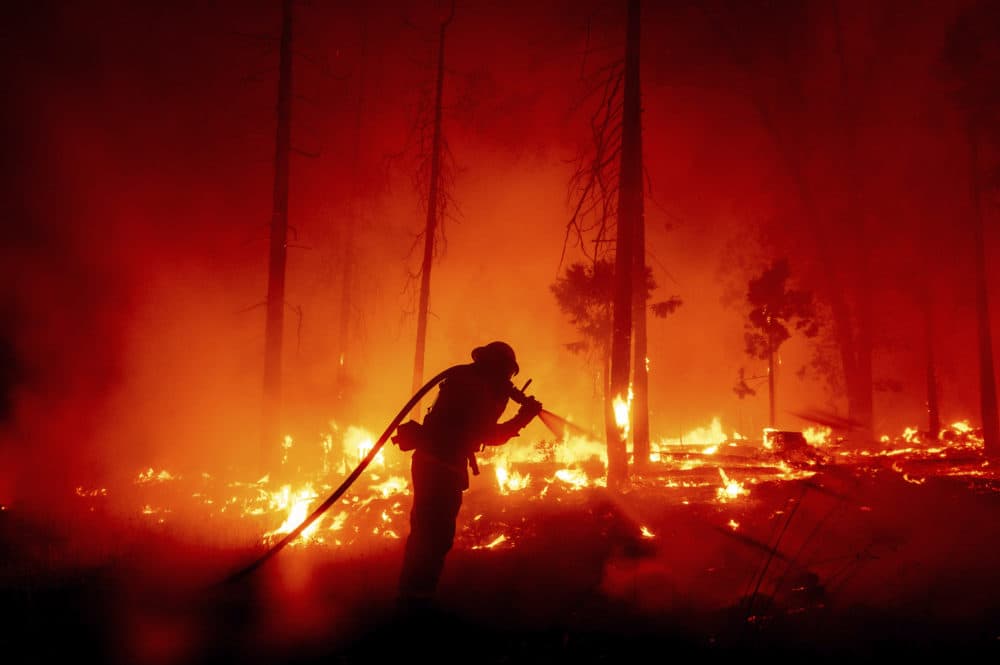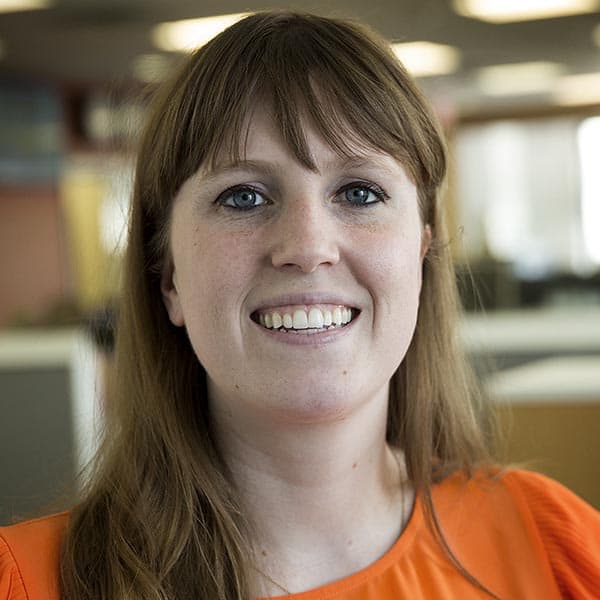Advertisement
Mass. Climate Researchers Calls Hazy Skies Caused By Wildfires 'Astounding And Quite Troubling'
Did you notice the unusual hazy sky this week? Smoke from the massive wildfires on the West Coast has made its way to New England. On top of extraterrestrial skies, we're coming out of the hottest summer on record here in Massachusetts.
We take stock on how these climate-change fueled events resonate in New England, and how they're connected with Michael Rawlins, an Associate Professor at UMass Amherst and Associate Director of the school's Climate System Research Center.
We also hear about other ways climate change is impacting people in Massachusetts with Ibrahim López-Hernández, a Climate Justice Organizer with GreenRoots. GreenRoots is an environmental justice organization based in Chelsea.
Interview Highlights
On what the hazy, orange skies mean in New England:
Michael Rawlins: "What these fires signal to me is that there's something very unusual going on out west. It's not uncommon for us to see hazy skies like this from fires in the west, typically in western Canada — often in the summertime, there'll be large fires — but the degree of fires burning out west right now is what's most alarming. And what we're seeing this summer with fires out west is really just part and parcel of what's happening to our environment."
"Particularly out west, the warming has been exacerbated by a decades-long drought. That's just providing ample conditions for this trend — there's essentially been about a five-fold increase in wildfires out in the western U.S."
"It does seem like an alarming amount of change in such a short amount of time. You spoke about the tropical systems in the Atlantic were a record number of storms, [and] our record warm summer here in Massachusetts ... we can expect these climate impacts will just continue on in the future given our amount of burning fossil fuels and the limited amount of mitigation we're doing right now. We really have to adapt to these changes, particularly across eastern Massachusetts. Sea level rise is one of the most impactful things we're going to be experiencing in years to come."
Advertisement

On how climate change and rise in heat is affecting city residents:
Ibrahim López-Hernández: "So right now, it's very difficult for a lot of families who still have work — who have the privilege of still having work — trying to maintain a healthy lifestyle. Maybe they were used to walking outside or trying to get some exercise, for example. Now they have to be inside due to COVID, except for going to work. Most of them can't afford air conditioners or maybe don't have air conditioning. And so there's a very big economic barrier to trying to keep cool when they used to do it outside and would rely on those public resources such as parks. So there are a lot of barriers in trying to keep healthy. And our old housing stock and the very old infrastructure that we have in place doesn't help either."
On the current impacts of climate change on the Commonwealth:
Michael Rawlins: "Well, it's been getting worse and it's it's going to get worse in the future, I think that's the thing we need to keep in mind. We have an ability to to mitigate some of the warming if we act. And I should mention that the Northeast U.S., unfortunately, is one of the fastest warming parts of the U.S. and that's expected to continue. By the time the global average temperature reaches two degrees Celsius above pre-industrial, which you will likely do later this century, the northeast U.S. will have warmed by likely three degrees Celsius."
"So some of these impacts we see or seeing now are only going to get worse. It's really, really imperative that our elected officials act in order to mitigate the upcoming impacts we're expected to see that will only get worse with time."
This segment aired on September 16, 2020.

